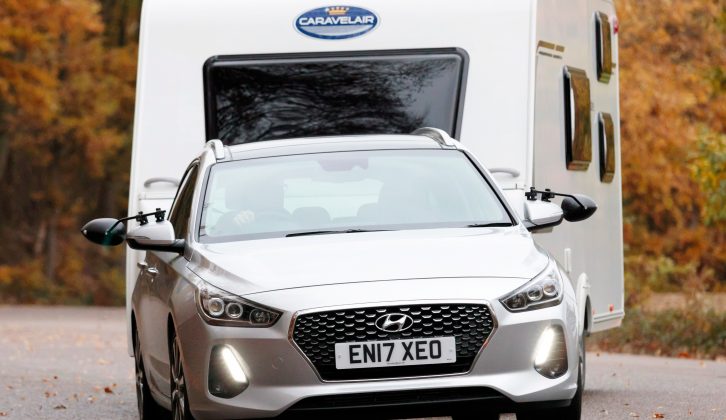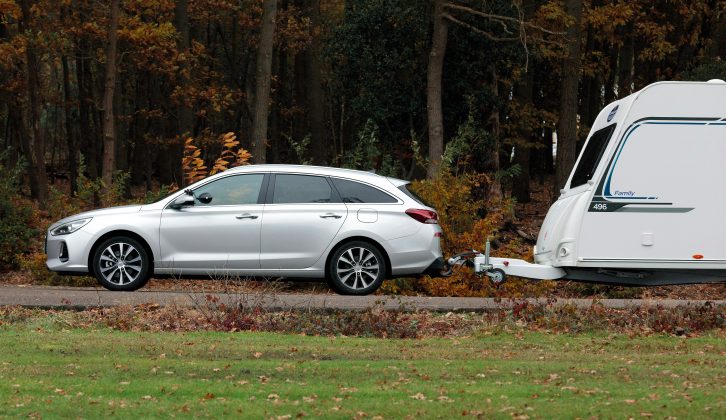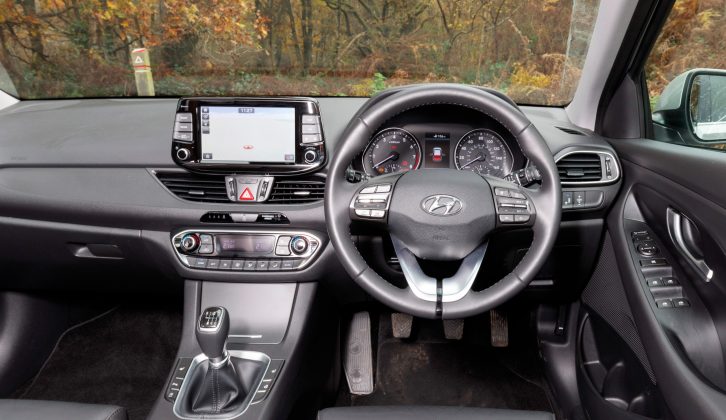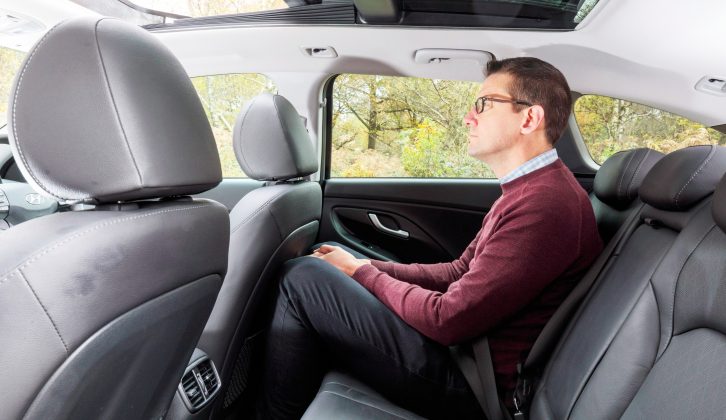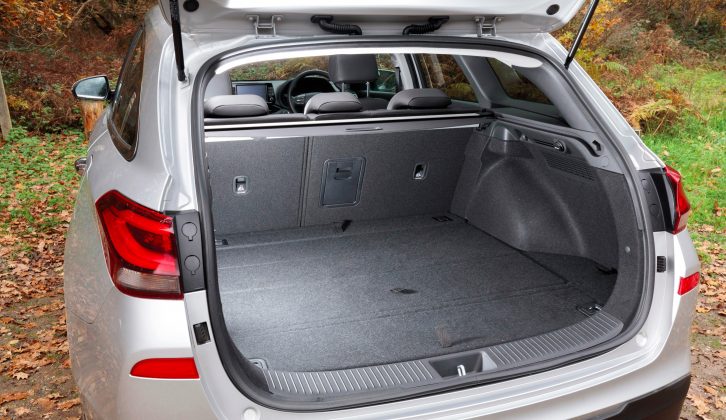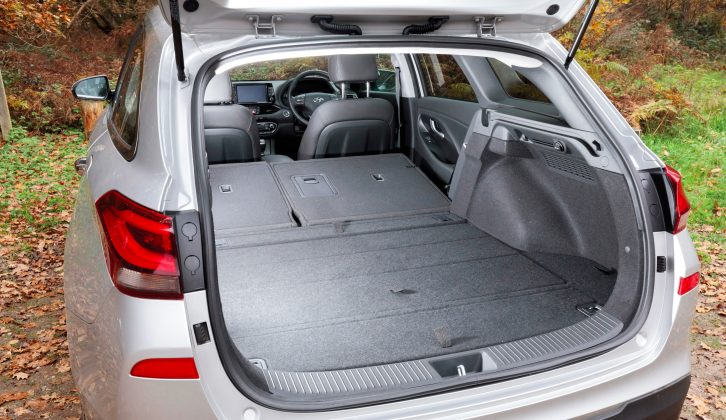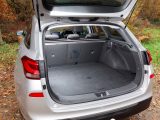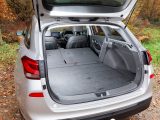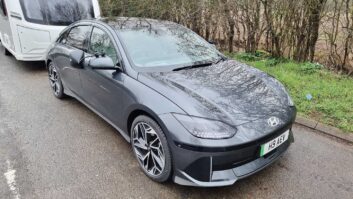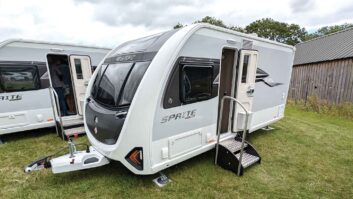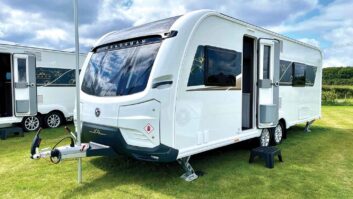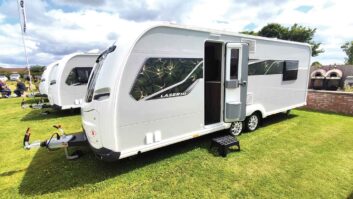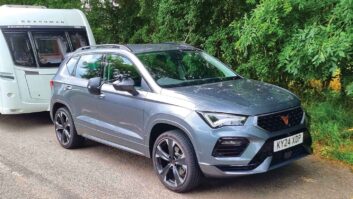Verdict
The Hyundai i30 Tourer is a capable family estate and good value for money.
It struggled with the hill start, but is steady when towing unless the engine is worked very hard.
Pros
It was a secure, stable and grippy tow car
The boot is large
The range is competitively priced
Cons
Rivals are better in the hill-start test
The brake test was disappointing
The old Tourer accounted for just one in every 10 i30 sales, but Hyundai expects the new model to account for closer to two in 10.
That’s partly because it has dropped the premium for the estate over the hatchback from £1500 to £500.
We’re driving the 1.4-litre petrol in the range-topping Premium SE spec, to see what tow car ability it has.
How well does the petrol engine tow? And does the Hyundai i30 Tourer do enough to stand out among its many talented rivals?
This is a comfortable and relaxing car, with little wind or road noise
Towing
Hyundai offers the i30 Tourer with a choice of petrol and diesel engines, with outputs ranging from 108bhp to the 138bhp of the turbocharged petrol model we’ve been driving.
Perhaps the 134bhp 1.6-litre diesel is the more obvious choice for towing, but the 1.4 T-GDI looks like a worthy alternative.
The engine follows a similar route to Ford’s EcoBoost and VW’s TSI units, with a relatively small capacity and turbocharging for improved performance.
There’s 178lb ft of torque, but this trails the 1.6 diesel by 43lb ft.
We matched this Hyundai i30 Tourer to a Caravelair Antarès 496 with a MiRO of 1135kg, pretty much an 85% match, working from Hyundai’s minimum kerbweight but including 75kg for the driver.
Kerbweights across the line-up range from 1337-1500kg, including that 75kg figure, meaning 85% matching ratios start at 1136kg.
Is this petrol engine up to the job? Just about.
The 30-60mph time of 14.5 seconds is respectable, but the 16.2-second 50-60mph time in fifth gear is more revealing.
Although mid-range pulling power is reasonable for a petrol engine, the deficit compared with a diesel is noticeable unless you rev the engine hard and really work the gearbox.
Making a hill start on a wet 1-in-10 slope proved a struggle.
The electronic parking brake held car and caravan securely, but we found the brake released a bit early as we went to pull away.
This allowed car and caravan to roll back a fraction before pulling forwards. Too many revs and the wheels would spin. Too few and the engine would bog down.
After a couple of hill starts there was a strong hot smell from the clutch. Our test took place in very wet weather, but we’d have expected better.
The braking was also sub-par. Even allowing for the wet, 13.1m is a lengthy stopping distance from 30mph.
The i30 has other strengths as a tow car, however. In still air at motorway speeds, it felt secure.
The car was nudged about a bit when overtaking high-sided vehicles or if caught by a sudden gust, but nothing untoward.
In the lane-change test, the Hyundai changed direction crisply and gripped securely.
Even tackling the manoeuvre aggressively, there was no pushing or shoving from the van.
Everyday Driving
The i30 Tourer makes a better everyday drive, certainly with this engine.
Without the burden of a caravan, the 1.4 T-GDI accelerates at an acceptable pace.
It’s not as zesty as a Ford EcoBoost engine, but works with neat efficiency.
The i30 soaks up bumps in the road, helped by modest 17-inch alloys and tyres with relatively tall sidewalls.
At high speeds, this is a comfortable and relaxing car, with little wind or road noise.
The i30’s steering feels light and remote, and the car seems to keep the driver at arm’s length. It’s competent and easy to drive, but not a lot of fun.
The heavily assisted steering and light clutch help when parking.
All-round visibility is good, and parking sensors front and rear and a reversing camera help squeeze into a tight space.
Space
Drivers of most shapes and sizes should be comfortable, especially in high-spec Premium SE cars, which have electrically adjustable lumbar support.
There’s more than enough legroom for drivers well over 6ft tall, although the sunroof does slightly impinge.
It’s good to see air vents between the front seats to help keep those in the back cool.
But legroom isn’t as generous in the back as you’d find in some rivals – notably the Škoda Octavia.
The boot is large, though, measuring a very competitive 602 litres according to Hyundai.
There’s no load lip to lift items over, the opening is wide, and there’s storage under the floor.
With the back seats lowered there’s a slight slope to the floor, but capacity rises to 1650 litres.
Running Costs
The Hyundai i30 Tourer range is very competitively priced, starting at £17,495.
Our top-spec petrol costs £24,155, although according to What Car?, a transaction price of £23,046 should be achievable.
You get lots of equipment for your money. Leather seat facings, heated front seats, a panoramic glass sunroof, Bluetooth connectivity, touchscreen sat-nav and keyless entry are all standard.
Safety kit includes autonomous emergency braking and a lane departure warning system.
Fuel economy is good for a petrol car, with an official combined figure of 51.4mpg. We achieved 23.9mpg towing.
The five-year warranty is longer than that of most rivals.
Technical Specifications
| Engine Size | 1353 cc |
| Towball Limit | 80 kg |
| Maximum Towing Limit | 1400 kg |
| Power | 138 bhp |
| Torque | 178 lb ft |
| Offical MPG | 51.4 mpg |
| Towing MPG | 23.9 mpg |
| CO₂ | 129 g/km |
